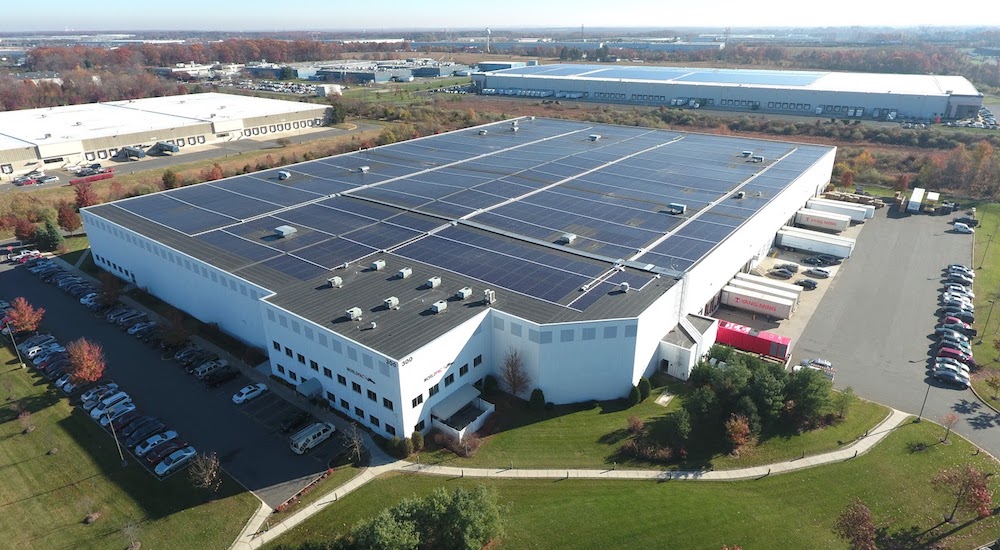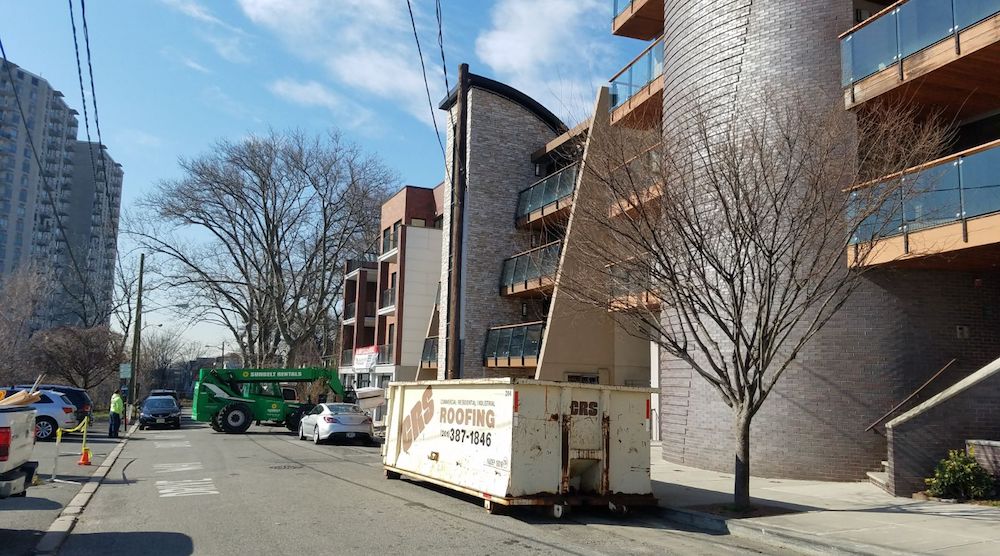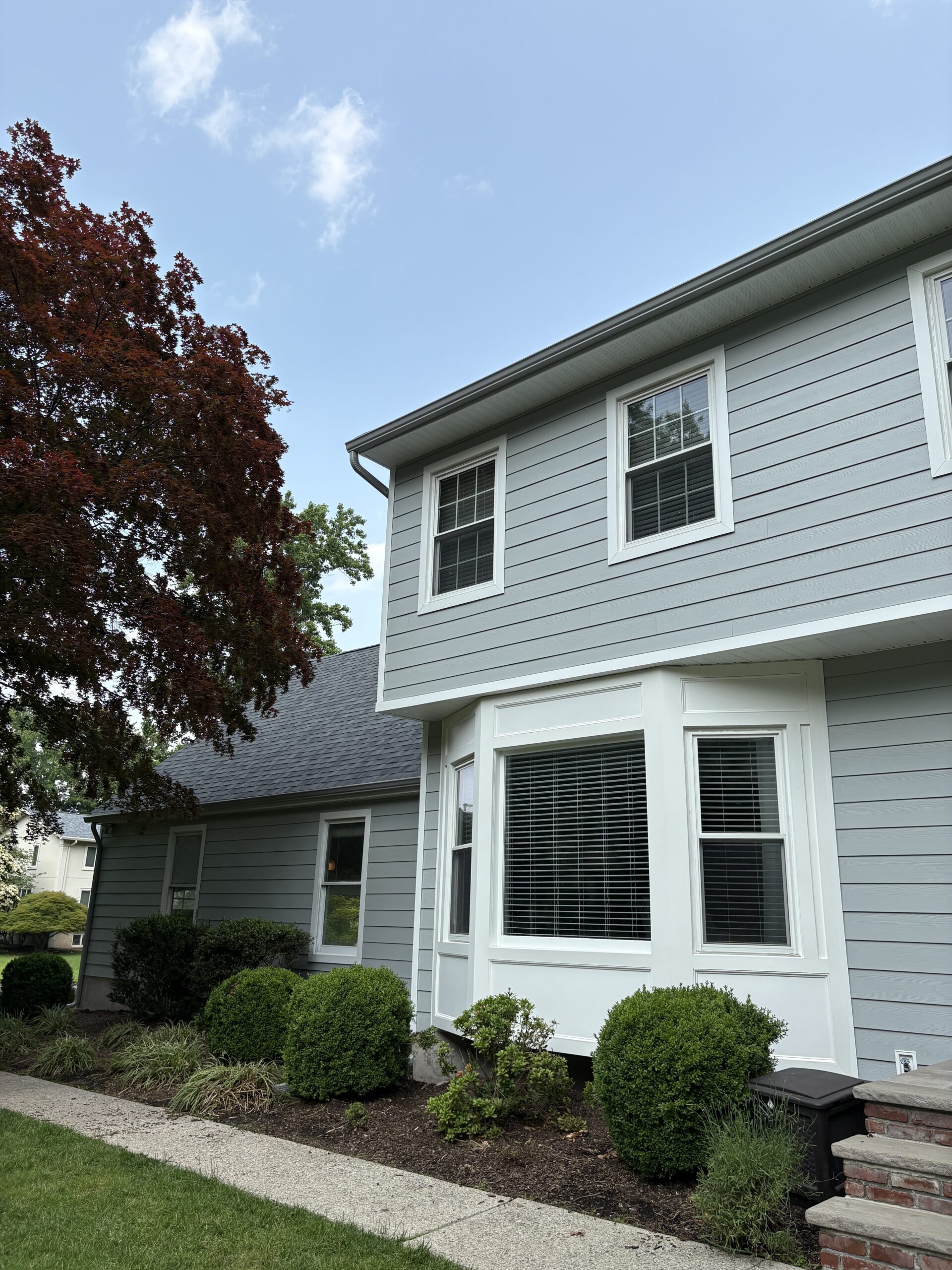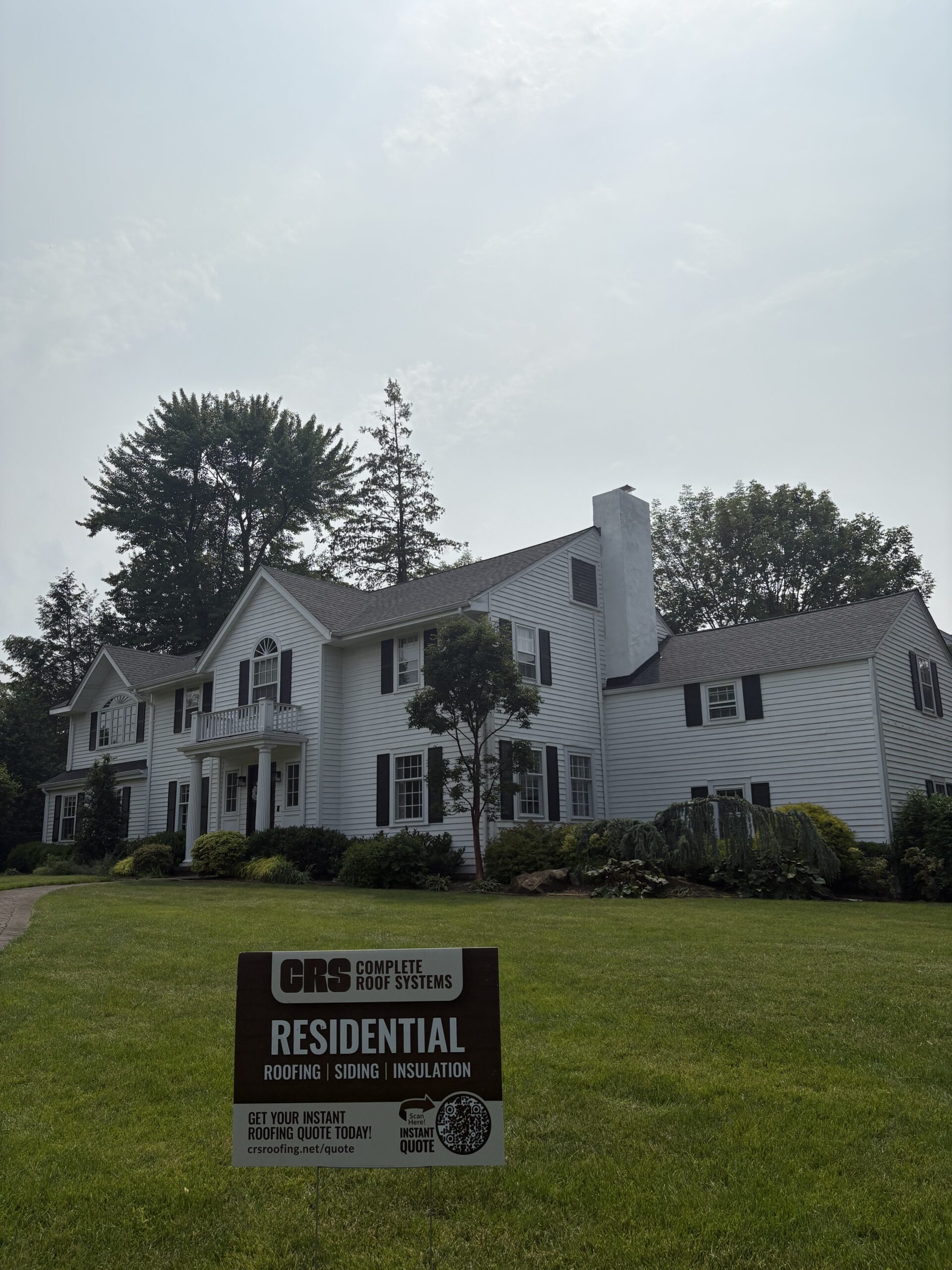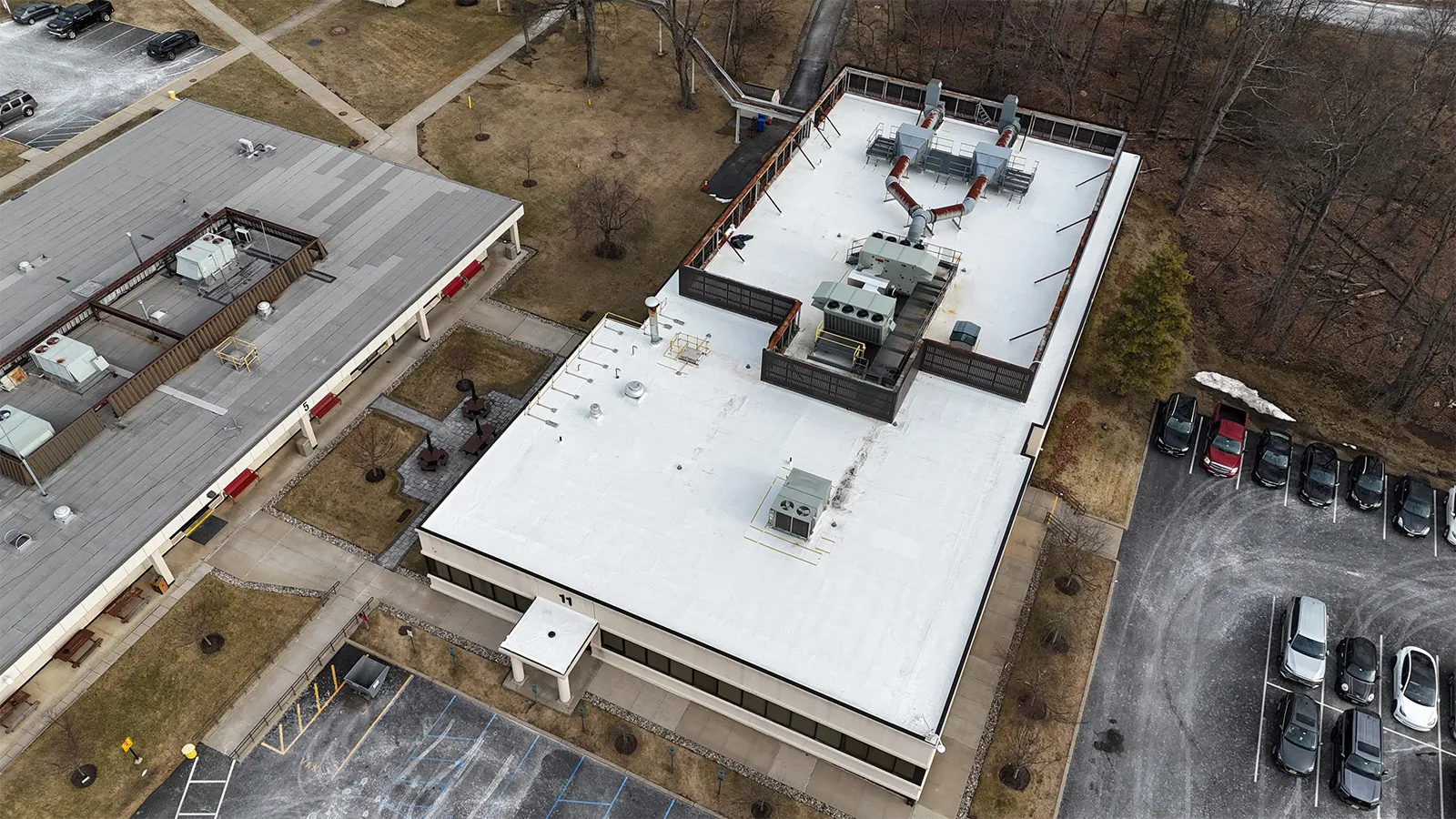With a growing focus on green initiatives and rising energy costs, energy-efficient roofing materials present an opportunity to reduce expenses by hundreds or thousands of dollars per year and reduce your commercial building’s environmental impact.
Compared to many states, New Jersey has relatively high commercial and industrial electricity prices, making energy-efficient roofing materials all the more important. When it comes to commercial rates, New Jersey is among the highest in the country, with an average rate of 12.91 cents per kilowatt-hour. New Jersey’s industrial rate is also very high, at an average of 10.76 cents per kilowatt-hour.
As utility rates inevitably increase over time, energy-efficient roofing materials are an excellent investment, as the annual savings increase as the cost of energy increases. Multiply yearly savings by the decades-long lifespans of commercial roof systems and solar installations, and it is easy to see why the use of energy-efficient roofing materials should be standard when evaluating your commercial roofing options.
Three Energy-Efficient Roofing Options
When looking for energy-efficient roofing for commercial buildings, there are several options to consider. TPO roofs, PVC roofs, and rooftop solar installations can all decrease energy costs. The key is to determine which roofing option is best for your situation.
PVC and TPO single-membrane roofing systems, especially white or light-colored, reduce energy costs by increasing solar reflectance and minimizing airflow. According to the Green Building Alliance, traditional black roofs reflect about 5–15 percent of solar radiation, while light-colored roofs reflect more than 65 percent.
These roofing membranes also block airflow, preventing heat from escaping in the winter and cold air from escaping in the summer. When installed by a reputable commercial roofer, airflow through the roof is further minimized by using the proper air barriers, sealants, and tapes, providing energy-efficient roofing that saves money for years to come.
Thermoplastic Polyolefin (TPO)
TPO has achieved widespread market acceptance as an energy-efficient roofing material in just two decades since its introduction. In fact, TPO sales now exceed those of all other commercial roofing types combined.
TPO is a green product because it does not contain plasticizers, and it is completely recyclable. Carlisle SynTec is a leader in producing TPO single-ply roofing material that is certified by the Cool Roof Rating Council (CRRC).
Polyvinyl Chloride (PVC)
PVC is another energy-efficient roofing material commonly used in New Jersey on low-slope roofs. PVC is fused to a layer of polyester to make it highly tear-resistant.
The heat-welded seams are typically stronger than the membrane itself, and its waterproofing capability makes it a popular choice for energy-efficient roofing material used under planted gardens and green roofs.
Duro-Last is the industry leader in supplying customized, prefabricated PVC roofing systems, with up to 85 percent of the seams pre-welded in the factory for easy and fast installations. It is also known for its solar-ready roofing systems, making installing rooftop solar panels easier.
Commercial rooftop solar
In the right situations, rooftop solar is a cost-effective way to reduce energy costs. Solar is not just for perpetually sunny places; it is already widely embraced in New Jersey. According to the Solar Energy Industry Association (SEIA), New Jersey ranked 7th in the country in total installed solar capacity in 2021.
Recent reductions in material and installation costs make commercial rooftop solar a more viable energy-efficient roofing material than ever. Even on cloudy days, today’s solar panels convert more solar radiation into electricity.
There are also tax benefits favorable to many businesses. The Investment Tax Credit (ITC) stands at 26 percent through the end of 2022, declining to 22% in 2023 and 10% in 2024.
Thanks to an accelerated depreciation schedule (Bonus MACRS), deducting a large percent of a solar project’s cost on federal tax returns is possible. Solar renewable energy certificates (SRECs) offer another potential revenue stream to offset costs further.
TPO vs. PVC Comparison
In general, TPO and PVC single-ply membranes are more similar than not. When properly installed by certified contractors, light-colored TPO and PVC single-ply membranes are both watertight, highly reflective, wind-resistant, fire-resistant and low-maintenance.
The results of tests conducted according to ASTM D4434 (PVC) and ASTM D6878 (TPO) yield comparable results for:
- Retention of properties after heat aging
- Elongation at break
- Tearing strength
- Breaking strength
Break and tear resistance is crucial to long-term energy performance, and both singly-ply membranes perform well in this regard. Also, both TPO and PVC energy-efficient materials in NJ are very weldable. The seams hold up well, protecting from the elements and potential wind damage common with summer storms.
Given the similar overall performance of TPO and PVC, it is crucial to identify when particular circumstances may give one an edge over the other. According to GAF, TPO holds an advantage in fungal resistance and sustainability. In contrast, PVC has an edge in chemical resistance and initial flexibility.
The strength of PVC seams provides an edge where wind uplift in hurricane-force winds may be a factor. Also, PVC’s chemical resistance is a plus in particular situations, such as on the roofs of restaurants with grease traps. Newer TPO formulations have proven superior in heat aging and accelerated aging tests.
Which is Right For You?
When it comes time to choose energy-efficient roofing materials for your commercial building, several high-quality options are suited for New Jersey. From TPO and PVC to rooftop solar installations, every roof is unique.
If you are considering a commercial roof replacement with energy-efficient materials, check out our 10 Important Questions to Ask and contact a reputable contractor to provide their recommendation on what would be best suited for your building.
Contact Us Today
Over four decades of experience and professionalism make CRS one of the region’s premier commercial roofing contractors. We work with clients to customize systems that optimize energy-efficient roofing materials like TPO, PVC and solar.
We work with industry leaders like Duro-Last and Carlisle to offer customized TPO and PVC roof solutions. We can also assist you with solar roofs that may significantly reduce your utility costs.
Thanks to our expertise with all types of energy-efficient roofing, we are well-positioned to help you compare and contrast your options so you can make an educated, informed decision that is best for your business.
We would welcome the opportunity to learn about your roofing needs. Please contact us today for further assistance or schedule an inspection by a certified roof inspector.

